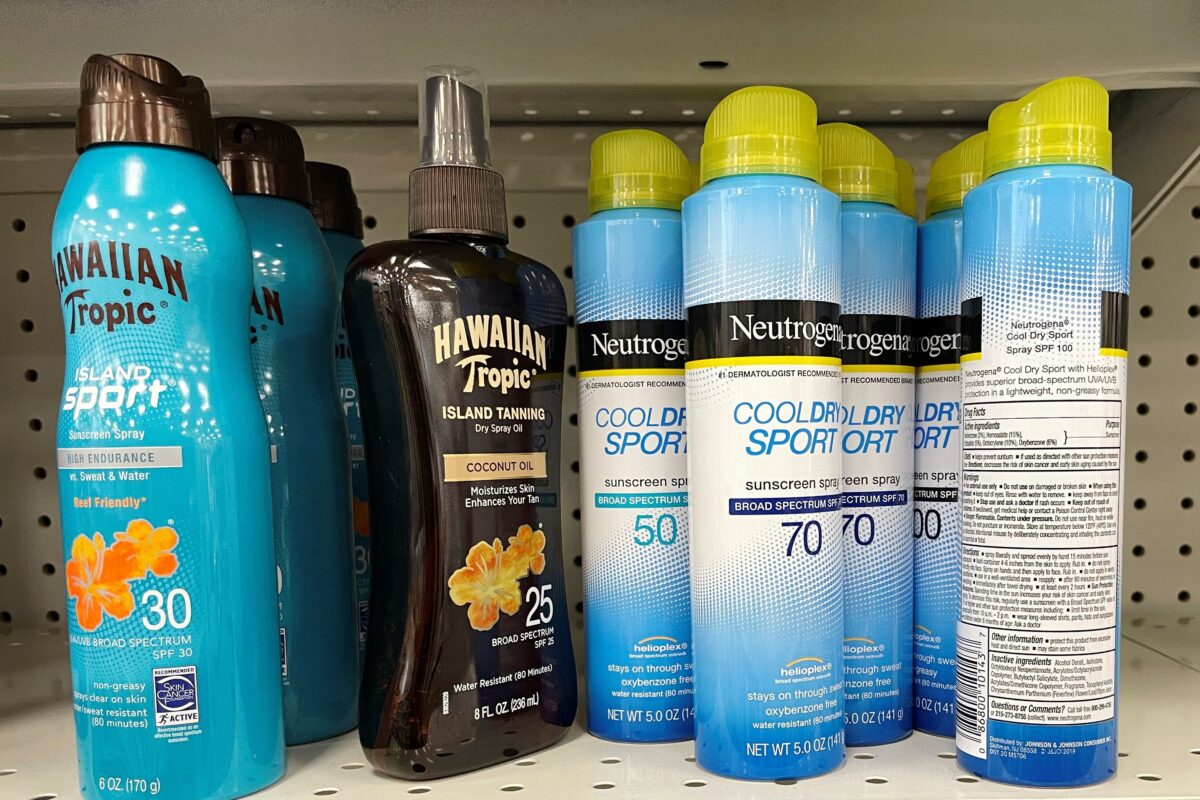
Therefore, in addition to recalls, Valisure is also petitioning the FDA to create a concentration limit for standard drug products, including sunscreen, and to also set a daily exposure limit. The 2ppm concentration limit only applies in special circumstances, which do not include sunscreen manufacturing. The FDA has clearly determined that benzene should not be used in standard pharmaceutical production at all because of its unacceptable toxicity however, there currently does not exist any established exposure limit for benzene.
FDA SUNSCREEN RECALL LIST SKIN
The presence of this known human carcinogen in products widely recommended for the prevention of skin cancer and that are regularly used by adults and children is very troubling,” said David Light, Founder and CEO of Valisure. Its association with forming blood cancers in humans has been shown in numerous studies at trace levels of parts per million and below. “Benzene is one of the most studied and concerning human carcinogens known to science. A study from 1939 on benzene stated that “exposure over a long period of time to any concentration of benzene greater than zero is not safe,” which is a comment reiterated in a 2010 review of benzene research specifically stating “There is probably no safe level of exposure to benzene, and all exposures constitute some risk in a linear, if not supralinear, and additive fashion.” Benzene is specifically associated with blood cancers such as leukemia, making absorption through the skin particularly concerning as there have been multiple studies by FDA researchers showing that chemicals in sunscreen products are found in the blood at high levels after application to the skin. The hematotoxicity of benzene has been described as early as 1897. The toxicity of benzene in humans has been well established for over 120 years.

Being that many of the tested sunscreen and after-sun care products did not contain detectable levels of benzene, it does not appear that benzene use is unavoidable for their manufacture and considering the long history of widespread use of these products, it also does not appear that they currently constitute a significant therapeutic advance therefore, any significant detection of benzene should be deemed unacceptable. Link to reviewįDA currently recognizes the serious danger of benzene and lists it as a “ Class 1 solvent” that “should not be employed in the manufacture of drug substances, excipients, and drug products because of their unacceptable toxicity…However, if their use is unavoidable in order to produce a drug product with a significant therapeutic advance, then their levels should be restricted” and benzene is restricted to 2 ppm for these special circumstances. Valisure is accepting sunscreen products for analysis at no cost: Sunscreen Crowdsourcing Study LinkĬ has published a review for its members of the Valisure data suggesting products to avoid and which might be safest with regard to the benzene results. Valisure’s FDA Citizen Petition: Complete Valisure’s FDA Citizen Petition on Sun Care Products (All attachments and other resources linked below.) It is important to note that not all sunscreen products contain benzene and that uncontaminated products are available, should continue to be used, and are important for protecting against potentially harmful solar radiation. Valisure is asking for a recall of the contaminated batches and requesting FDA better define limits for benzene contamination in drug and cosmetic products. 27% of samples tested by Valisure contained detectable benzene and some batches contained up to three times the conditionally restricted FDA concentration limit of 2 parts per million (ppm). The National Institute for Occupational Safety and Health (NIOSH) defines benzene as a carcinogen and lists “inhalation, skin absorption, ingestion, skin and/or eye contact” as exposure routes. Department of Health and Human Services, the World Health Organization, and other regulatory agencies. Centers for Disease Control and Prevention, the U.S.

Benzene is known to cause cancer in humans according to the U.S. NEW HAVEN, CT – – Valisure LLC has tested and detected high levels of benzene, a known human carcinogen, in several brands and batches of sunscreen, which are considered drug products by the Food and Drug Administration (FDA), as well as in after-sun care products, which are generally regulated by FDA as cosmetics. VALISURE DETECTS HIGH LEVELS OF KNOWN HUMAN CARCINOGEN BENZENE IN SEVERAL SUNSCREEN PRODUCTS AND REQUESTS FDA ACTIONS 78 sunscreen and after-sun care products contained benzene, an industrial chemical known to cause cancer and other potentially serious health risks


 0 kommentar(er)
0 kommentar(er)
